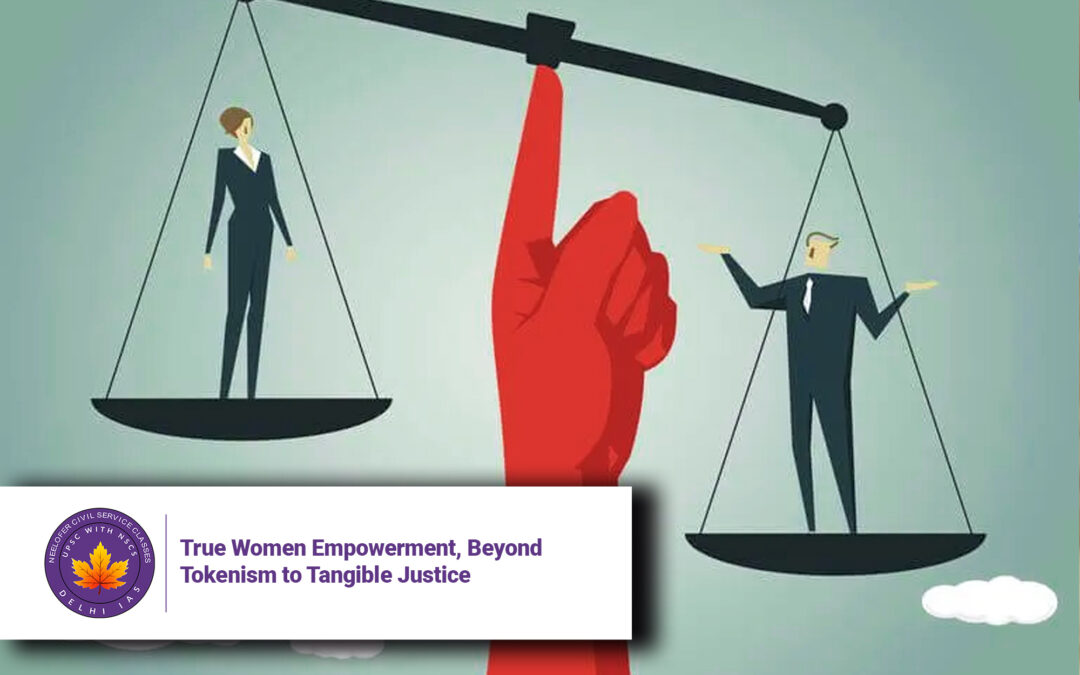True Women Empowerment, Beyond Tokenism to Tangible Justice
Introduction
The case of a 47-year-old domestic worker who stood firm against former JD(S) MP Prajwal Revanna—despite intimidation, legal delays, and social stigma—exposes the glaring gap between India’s rhetoric of women’s empowerment and its reality. While the country celebrates women CEOs and “She-EO” awards, true empowerment remains elusive for those without privilege. This article examines:
-
The hypocrisy of selective empowerment (celebrating elite women while ignoring survivors of abuse)
-
Systemic failures in supporting women who seek justice
-
A 5-point blueprint for structural reform
-
5 Key Q&A on women’s rights and legal justice
By the end, we must confront an uncomfortable truth: Empowerment without institutional support is just performative activism.
The Prajwal Revanna Case: A Rare Win, but at What Cost?
1. The Survivor’s Battle
-
No Privilege, No Power: A domestic worker with no wealth, political connections, or media backing took on a powerful MP.
-
Legal Harassment: Faced high-profile lawyers, procedural delays, and character assassination.
-
Social Stigma: Risked job loss and community ostracization for speaking up.
2. Why This Case Stands Out
Most sexual assault cases in India end in:
-
Acquittals (only ~27% conviction rate in rape cases).
-
Out-of-court settlements (pressure on survivors to withdraw complaints).
-
Victim-blaming (“Why did she go there? What was she wearing?”).
This survivor’s refusal to back down strengthened jurisprudence for future cases.
The Hollow Spectacle of “Women’s Empowerment”
1. Empowerment for the Elite vs. the Marginalized
| Aspect | Privileged Women | Marginalized Survivors |
|---|---|---|
| Recognition | Magazine covers, awards, conferences | Ignored after verdict; no livelihood aid |
| Support Systems | Legal teams, PR, financial safety nets | Alone against systemic intimidation |
| Outcome | Career growth, “inspirational” narratives | Jobless, indebted, traumatized |
2. The State’s Role: Optics Over Action
-
Celebrates “justice served” when high-profile cases convict abusers.
-
Abandons survivors post-verdict: no compensation, jobs, or mental health support.
5 Structural Reforms for Real Empowerment
1. State-Funded Survivor Compensation
-
Why? Legal battles drain finances. Current victim compensation funds exclude gender violence survivors.
-
How?
-
Financial aid covering legal fees + 2 years’ living costs.
-
Model: Kerala’s Vanitha Scheme (₹10 lakh compensation for rape survivors).
-
2. Dedicated Legal Aid Cells
-
Problem: Legal aid is underfunded; survivors rely on overburdened NGOs.
-
Solution:
-
Specialized survivor litigation units with state-paid lawyers, forensic experts, and victim advocates.
-
Fast-track courts for gender-based crimes (like Delhi’s Saket Courts).
-
3. Guaranteed Employment Quotas
-
Current Reality: Survivors face hiring discrimination (“troublemaker” stigma).
-
Fix:
-
5% reservation in govt jobs, PSUs, and corporate CSR hires.
-
Example: Tamil Nadu’s all-women police stations employ domestic violence survivors.
-
4. Psychological & Trauma Support
-
Need: 70% of survivors develop PTSD; therapy is unaffordable.
-
Action:
-
Free counseling under Ayushman Bharat.
-
CSR mandates for corporates to fund trauma recovery programs.
-
5. Institutionalize Survivor Expertise
-
Opportunity: Lived experience = powerful tool for systemic change.
-
Steps:
-
Train survivors as POSH committee members, police station counselors, and legal literacy mentors.
-
Example: Rahat (Maharashtra’s survivor-led anti-trafficking collective).
-
5 Key Q&A on Women’s Justice in India
Q1: Why focus on survivors instead of fixing the entire legal system?
A: Survivors face unique vulnerabilities (stigma, poverty). Supporting them sets a precedent that fighting back won’t ruin lives.
Q2: Won’t compensation encourage false cases?
A: No. False allegations are rare (<5% per NCRB). Robust investigations (forensics, witness checks) prevent misuse.
Q3: How can employers be forced to hire survivors?
A:
-
Amend POSH Act to include hiring incentives.
-
Tax breaks for companies employing survivors.
Q4: Why is mental health support critical?
A: Trauma affects job performance, relationships, and health. Ignoring it perpetuates cycles of poverty.
Q5: What’s the #1 reform needed?
A: Survivor-centric legal aid. Most drop cases due to financial exhaustion, not lack of evidence.
Conclusion: From Applause to Action
The domestic worker who fought Prajwal Revanna didn’t just win her case—she exposed India’s empowerment charade. Real change requires:
✅ Funding survivors, not just felicitating them.
✅ Treating trauma recovery as a right, not charity.
✅ Making workplaces safe for those who speak up.
As AIADMK’s Ansara Reddy argues:
“Women who fight for justice deserve more than applause; they deserve a future.”
That future must be written into law—not left to hashtags and hollow slogans.
Author
Ansara Reddy
AIADMK Spokesperson & Gender Rights Advocate







